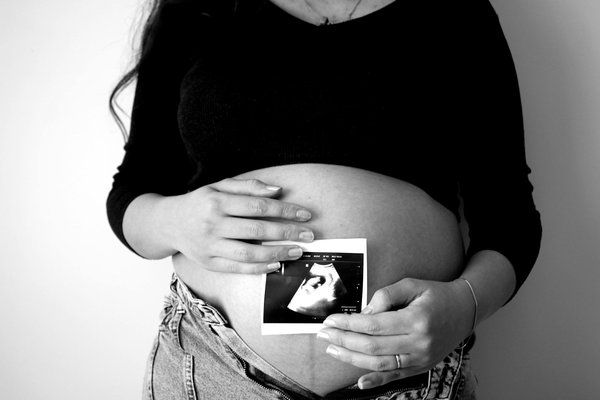Understanding Emotional Challenges Post-Childbirth
Navigating emotional challenges post-childbirth can be daunting, with many new mothers experiencing a rollercoaster of feelings. After giving birth, it’s common to encounter a wide range of emotions, from joy and love to confusion and fear. These experiences are often influenced by the dramatic hormonal changes taking place within the body, which can significantly affect one’s mental health.
Recognising the signs of postpartum depression and anxiety is crucial. While mild mood swings and “baby blues” are normal, postpartum depression features more intense symptoms such as persistent sadness, loss of interest in favourite activities, or overwhelming fatigue. Anxiety may manifest through constant worry, feelings of panic, or physical symptoms like increased heart rate.
Understanding these emotional challenges is vital because early detection and intervention can make a significant difference. Educating oneself about the signs and seeking support can empower mothers to manage their emotional health effectively during this life-altering transition. Awareness and recognition are the first steps towards healing and enjoying motherhood to its fullest.
Practical Strategies for Managing Emotional Well-being
Developing effective coping strategies is vital for new mothers as they navigate the emotional challenges of postpartum life. Prioritising self-care can greatly enhance emotional resilience and mental clarity. Building a routine that includes rest, nutrition, and hydration ensures that physical health supports mental well-being. Mindfulness techniques, such as deep breathing or guided meditation, can also be invaluable tools in reducing stress and anxiety, allowing mothers to reconnect with the present moment and foster a sense of calm.
Integrating mindfulness can be as simple as taking a few minutes each day for focused breathing or practicing gratitude journaling to focus on positive aspects of daily life.
Another practical approach to managing emotional well-being is establishing a solid support network. Engaging with family and friends can make a significant difference. Regular communication with trusted individuals provides emotional support and a sense of community. It’s crucial to reach out and share feelings, which can alleviate the sense of isolation some mothers may experience.
Additionally, joining support groups, either in-person or online, connects mothers with others facing similar experiences, facilitating shared understanding and collective encouragement. These strategies can empower mothers to thrive during this transformative time.
Seeking Professional Support
Access to professional support is crucial for new mothers facing emotional challenges post-childbirth. Recognising when to seek help is critical, especially when symptoms of postpartum depression or anxiety persist despite self-care efforts. A timely referral to mental health resources can provide the required intervention and support.
Professional help encompasses various therapy options. Cognitive Behavioural Therapy (CBT) and Interpersonal Therapy (IPT) are widely recommended for managing postpartum depression. Both therapies focus on understanding and changing thought patterns, thereby improving emotional responses. Consulting a healthcare provider can guide mothers in choosing the most suitable therapy.
In the UK, multiple support services offer assistance. The National Health Service (NHS) provides access to perinatal mental health services, including counselling and therapy. Organisations like Mind and PANDAS Foundation offer helplines for emotional support, ensuring someone is always available to listen.
Moreover, local support groups can foster a sense of community and understanding. Finding these resources often involves reaching out to local health services or navigating dedicated websites. Professional support not only helps manage symptoms but also equips mothers with strategies to enhance their mental well-being.
Informative Resources and Readings
Access to informative resources and readings can be pivotal in navigating motherhood’s emotional complexities. Several recommended readings offer valuable insights into managing mental health during this phase. Books like “What No One Tells You” by Dr. Alexandra Sacks and Dr. Catherine Birndorf, and “This Isn’t What I Expected” by Dr. Karen Kleiman, are excellent choices. These books cover a wide range of topics, from understanding emotional shifts to practical self-help techniques.
Online platforms also provide parenting support and further learning opportunities. Websites like BabyCenter and Motherly deliver articles and forums where mothers can find community guidance and evidence-based advice. Here, new mothers can learn about postpartum depression, anxiety management, and healthy coping strategies, equipping them with knowledge to tackle emotional hurdles effectively.
Educating oneself about mental health during motherhood is invaluable. By exploring diverse resources and enriching their understanding, mothers can better manage their emotional well-being. This proactive approach not only aids in personal growth but also enhances the overall experience of motherhood, ensuring a more fulfilling and supportive journey for both mothers and their families.
Personal Stories and Expert Insights
Understanding through personal experiences provides profound comfort for new mothers facing emotional challenges. Many mothers report that sharing stories about overcoming postpartum hurdles fosters a sense of belonging. These narratives often highlight resilience, reminding others they are not alone in their struggles and victories.
From a professional perspective, expert advice from psychologists can offer clarity and assurance. Insights into hormonal impacts on mental health help demystify emotional fluctuations post-childbirth. Experts often suggest that understanding these changes can empower mothers to view their emotions with compassion and perspective.
Adding to this knowledge, psychological insights reveal that many women experience similar challenges, which supports mental well-being recovery. Resilient narratives and expert contributions create a balanced overall understanding, encouraging a positive outlook during motherhood.
Collaborative narratives bring communities of mothers and experts together, fostering hope and connection. Discussions between those who have faced these challenges and healthcare professionals highlight the importance of support and shared experiences. Gaining firsthand insights and professional recommendations assists new mothers to navigate emotional landscapes confidently. The combination of relatable stories and professional guidance offers a comprehensive approach to managing emotional challenges post-childbirth, enriching the motherhood journey.

